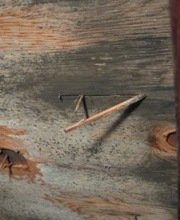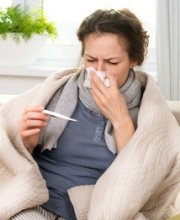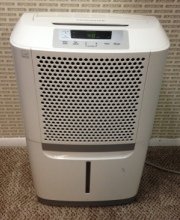Find a Mold Specialist Now
Click or Call, Toll-Free 24/7
Paecilomyces In The Home
Paecilomyces is a type of mold found all around the world. It may be golden, greenish-gold, tan or even lilac in color, depending on the strain. It is often found in soil and on decaying vegetation. Indoors, it is often found growing on spoiled food.
It can also sometimes be found on expired cosmetics. Many people don’t realize makeup expires or goes bad, but it does, and using old cosmetics can make you sick. An outbreak of infection related to this strain of mold was traced to contaminated lotion.
The mold can also live on things like fabric and even plastic, and sharing items like towels can lead to the spread of infection related to this type of mold. Of course, personal items such as towels really should not be shared anyway, as that can spread many types of infection.

Health Problems Related to Paecilomyces
According to an article in Clinical Infectious Diseases, reports of illness related to this type of mold are on the rise, especially in immunocompromised patients. These infections, known as paecilomycosis, may include:
- Chronic sinusitis, or infection of the sinus cavities, which can become serious due to the proximity of the sinuses to the brain
- Onychomycosis, or infection of the fingernails and/or toenails
- Skin infections
- Keratitis, or inflammation of the cornea, particularly in people that wear contact lenses, as well as corneal ulcers and endophthalmitis, or inflammatory of the intraocular cavities
- Lung infections, including pneumonia, and lung abscesses
- Ear infections
- Endocarditis, or infection of the lining of the heart, which can cause life-threatening heart damage
- Osteomyelitis, or an infection of the bone, which can require amputation of the limb to stop the spread of the infection
- Infections related to urinary catheter use
As mentioned earlier, such infections are most likely to occur in those with already-compromised immune systems. This includes people with type 2 diabetes, people that have undergone organ transplants, those with neutropenia (a disorder involving the white blood cells which affects immunity), those undergoing chemotherapy, and even people taking corticosteroids (medications such as prednisone).
While immunocompromised people are at greatest risk, elderly people and small children are also at increased risk. Rarely, previously healthy people get sick from this mold.
Infection is most likely to occur after some sort of trauma, like an injury or even surgery. For instance, an eye infection may develop after cataract surgery. A skin infection may develop after a person cuts his foot, especially a person with diabetes.
Because infection due to this type of mold is not very common, even though it does seem to be increasing in frequency, the optimal treatment is not known and therefore treatment is not always unsuccessful. Antifungal medications can be effective but the best medication or combination of medications and the best dose aren’t understood.
If you are experiencing any health problems you think might be related to mold exposure, see your doctor right away. Let your doctor know if you’ve been exposed to mold at home.
Mold-Related Infections in Pets
Paecilomyces has also been shown to cause infections in animals, including rats, turtles, cats and goats. Your pets can get sick due to exposure to mold. If you think your pets are experiencing symptoms of mold-related illness, see your vet right away.
Minimizing Exposure to Paecilomyces
Even if you are not immunocompromised, exposure to mold is not good for you and could cause illness. Mold often grows in hard-to-see places and homeowners don’t always realize there is mold in their homes until it has been there for a while. By the time you see or smell mold, you’ve probably already been exposed for a while. Because the risk to your health is significant, it’s important to deal with a mold problem as soon as you discover it.
Some homeowners prefer to hire a mold removal professional for the job while others prefer to handle the job themselves. The U.S. Environmental Protection Agency (EPA) recommends hiring a professional if mold covers a large area in your home, if there is mold in your home’s heating, ventilation and air conditioning ducts, or if you are experiencing mold-related health problems. Whether or not you plan to do the work yourself, we encourage you to schedule a free in-home consultation with a mold removal professional. Even if you plan to do the work yourself, you will benefit from some free advice from an expert in the field. Follow the link to find qualified mold removal professionals offering free consultations in your area.
Return From Paecilomyces To Our Main Mold Types Page
Privacy Policy Terms and Conditions Accessibility Do Not Sell My Information Disclaimer Contact Us




